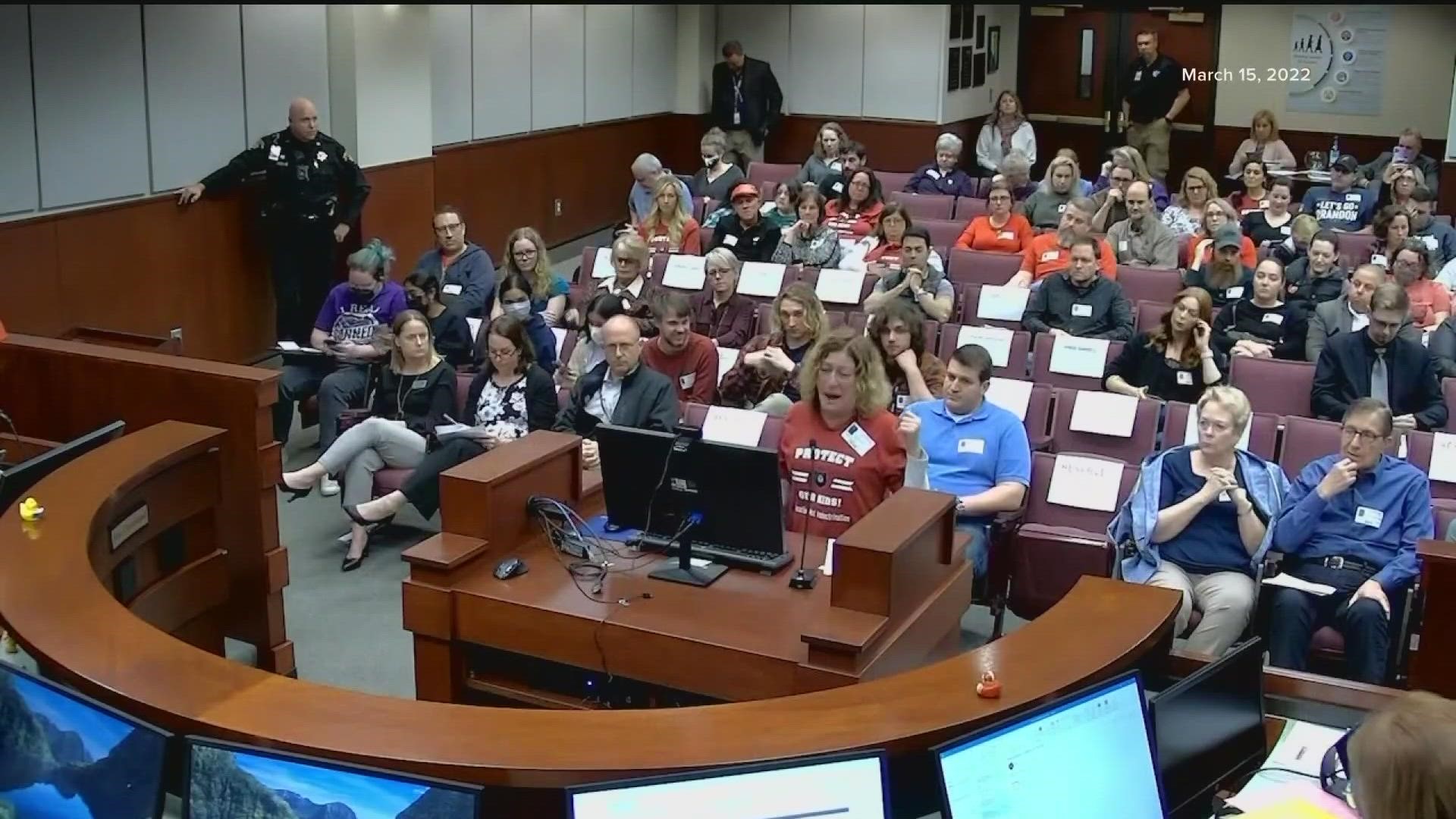FORSYTH COUNTY, Ga. — A group of mothers in Forsyth County said the board of education was silencing them -- and a federal judge partially agreed.
The judge ruled that parts of the Forsyth County Board of Education's public comment policies are unconstitutional. The case speaks to the board's decision to ban mother Alison Hair from board meetings as it violated her First Amendment right to free speech and her right to petition.
Hair, along with other parents who are part of the Mama Bears of Forsyth County, first sued the board on July 25 after she was banned from her method of criticizing the access students had to what she believes are inappropriate books. The district has since agreed to a settlement with the group.
"This lawsuit does not try to resolve the question of which books should be available in school libraries, but instead, addresses unlawful attempts to sanitize how parents speak about those books in the presence of elected officials and other adults," the suit reads.
Mama Bears is a collection of parents who raise concerns about books they deem inappropriate or pornographic that are available to students. In a nationwide effort to remove such books from schools, parents read what they call profane and sexually explicit passages during public school board meetings.
"But the Forsyth County School Board, embarrassed by debate about its choices, has gone so far as to silence and banish from its meetings any parent who simply reads aloud from its schools' library books," the suit read.
In the complaint, Mama Bears said their method is to bring awareness about what material sits on shelves within a child's reach.
"People cannot fairly pass judgment on books that they haven't read. And when a school's judgment as to which books young children should read is the subject of political debate, the First Amendment protects parents' rights to read aloud from these books, as well as the public's right to hear the language at issue," the original complaint reads.
For now, the school board can't enact its public forum policies, a point that will be discussed during its board meeting on Thursday at Noon, according to a district spokesperson.
How this mom got banned
Hair first caught national attention after reading a passage from "Extremely Loud and Incredibly Close," a novel about a 9-year-old boy whose father was killed in 9/11. Groups like Mama Bear have taken aim at the Jonathan Safran Foer novel for its mention of male genitalia.
During one of her first readings, the board chair Wesley McCall cut her off citing the board's policy about "profane comments." After returning to a meeting to read from a book, Hair was once again cut off and the board later sent her a letter informing her she was prohibited from speaking during public comment again.
Groups like Mama Bears of Forsyth County have helped with the national resurgence of book bans.
PEN America, a literary and free-expression advocacy organization, recently ranked Georgia No. 12 out of 50 states for book bans.
The organization created an Index of School Book Bans. The database documented decisions to ban books in school libraries and classrooms across the country between July 1, 2021, through June 30, 2022. Forsyth County led the state with the most banned books.
Mama Bears aims to make that list longer to protect their children.
But they are met with some opposition.
The Forsyth Coalition for Education, a non-partisan group of parents, students, teachers and education stakeholders are firm in making sure that attempts to limit access to books don't "parent other people's children."
The group shared a statement in the wake of the federal agreement, which can be read below:
"We have professional media specialists in our schools who make our children’s well-being and intellectual development their top priority. Reading is a way for students to connect with voices and experiences that may open up the wider world for them or help them understand their own thoughts and feelings. Censorship puts a stop to all of that and allows those with an ideological agenda to hijack our students’ education. While it’s true that not every book is appropriate for every child at every age, a book that is beyond the capacity of a fifth-grader may be a valuable experience for an eleventh-grader. With their years of education, we trust the professionals, not the noisy minority with an agenda, to make that determination."

